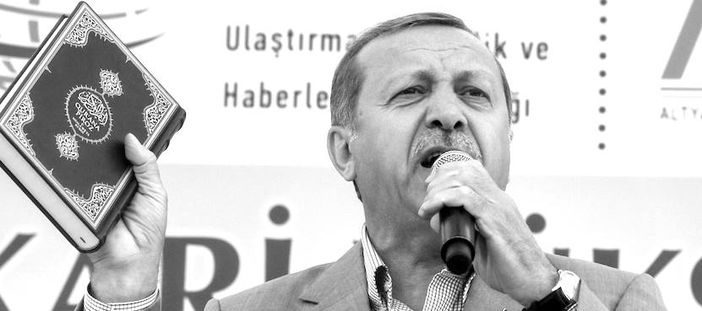The talk of the experience of the so-called “political Islam” in Turkey brings us back to Noah Feldman’s treatises; Feldman’s theory was based on the fact that the Islamic world is the ideal partner of Western civilization.
Noah Feldman, professor at Harvard Law School (and author of After Jihad: America and the Struggle for Islamic Democracy and The Fall and Rise of the Islamic State), does not see the Muslim world as a rival in the clash of civilizations. If Islamic groups are developed with Western ideas that carry Islamic slogans at the top of the hierarchy of power in several countries, the experiment will be spread to as many Arab and Muslim countries as possible. In the new world order.
Feldman believes that to be the best solution in order to contain “the Islamic world, to avoid the clash of civilizations and to eliminate Islamic terrorism”.
In Feldman’s view, Islamic terrorism is not ISIS and its products, but every resistance thought opposed to the expansion of the American project in the Arab and Islamic region. Feldman said that the formation of these Muslim groups will be the guarantor to provide an atmosphere conducive to the continuation of the security of the State of Israel – all this is possible if the “Islamic Caliphate” can be restored, he says.
Of course, Feldman does not want a state of succession such as Umayyad or Abbasid, for example, this is the embodiment of the nightmare of the clash of civilizations in the worst of its “scenarios” and not even a kind of economic union similar to the European Union – as this may lead to the exit of the Arab world from dependence on the West. About the “rise of the Islamic state”, he believes that it is possible to get from Arabs and Muslims to all you want, without violence and at the lowest cost, if you can inspire Muslims that they have become free.
These theories, which Feldman talks about, have resonated in the Islamic world.
The first system of political Islam is the Turkish regime.
In Turkey, a group of Islamist-oriented parties was born. These parties began with Necmettin Erbakan when he founded the National Salvation Party in 1970, where for the first time the program of a Turkish political party explicitly contained material of a religious nature, which led to the prohibition by the judiciary less than a year after its establishment, and this party formed the real basis for the series of parties of political Islam later.
Finally there is the AKP party, created after Recep Tayyip Erdoğan and Abdullah Gul separated from their teacher Erbakan and founded the Justice and Development Party in 2001. It has ruled Turkey since 2002 until today.
Returning to the experience of political Islam in Turkey, it is impossible to deny the fact that the AKP carries Ottoman orientations and this new Ottoman sentiment provokes a debate within the Turkish domestic scene. At the same time, it raises concerns beyond the Arab world because of the legacy of the Ottoman Empire.
Finally, a comment by a specialist in Turkish affairs is that “you cannot deny the fact that the Ottoman tendency of the AKP is now superior to the tendency going in the direction of the Muslim Brotherhood”. This may confirm the model, which Feldman seeks to circulate (a combination of Islam and secularism with the economy of a new-Ottoman project).
Turkey in all the above seems a model state with a confused identity, geography and political choices, and perhaps at the foundation of Turkey’s problem (and that of the Arab and Muslim world) is the strong presence of an ideological dimension in foreign affairs at the expense of building relationships based on mutual interests and non-interference in the internal affairs of other countries.





1 Comment
States cannot have religion,people may have religion.The people of Turkey do nat want to be ruled by islamic regulations(by 60%).There is only a group of 12-15% blind faith people who seem to want that
So;artificial efforts can overcome for a while,but in the end the the true way rules.